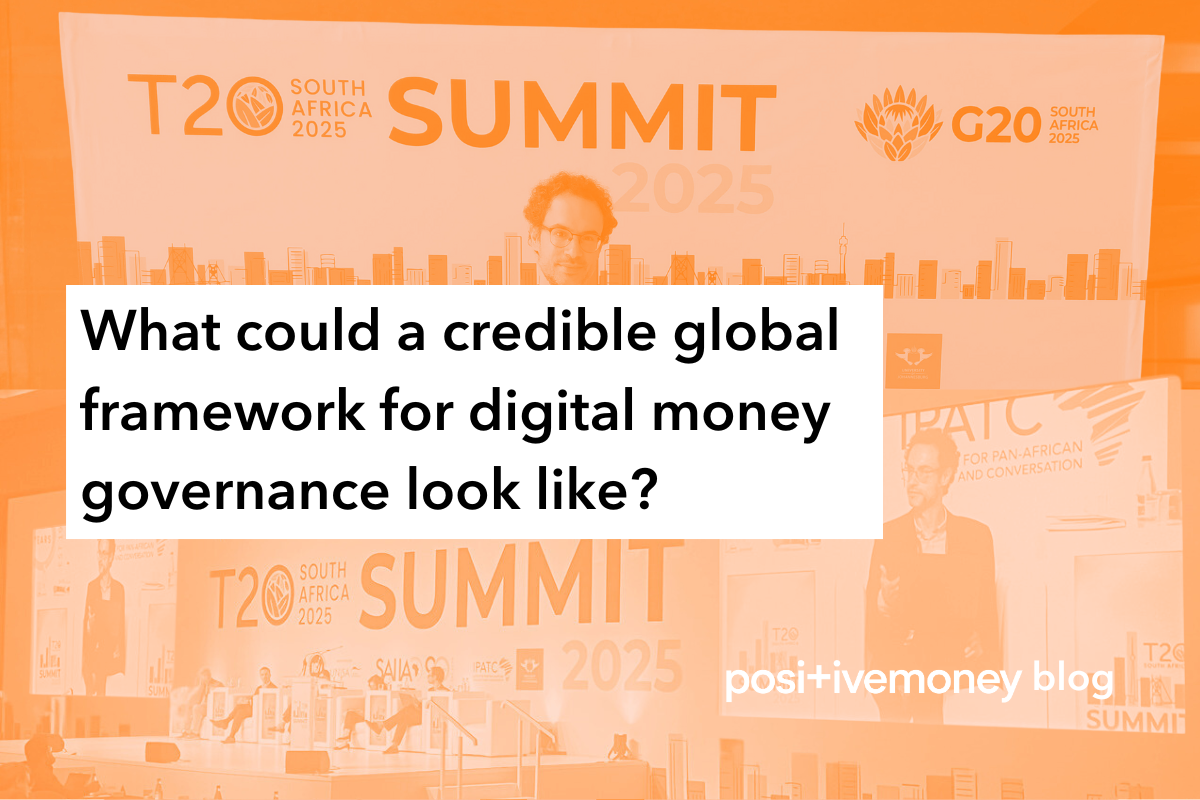
The future of moneyGlobal
2 December 2025
The first in our series of four panel discussions on the topic of ‘Can progressive macroeconomic policy for a just transition work domestically and internationally?’
Since the 2008 crisis, many leading thinkers have called for a new economic settlement. Central bank power has expanded with little accountability, with different kinds of economic policy (like monetary and fiscal) pulling in opposite directions. The ecological crisis, intersecting with new kinds of crises in the financial sector, price instability, rampant inequality within and between countries, and social and political unrest, makes establishing a new macroeconomic regime an even more urgent task.
Across two days in June, jointly with UCL’s Institute for Innovation and Public Purpose (IIPP), we brought together experts and civil society representatives to discuss what a macroeconomic framework for a just transition would look like, at national and international levels. Watch the first discussion below.

The panellists spoke to the tensions between domestic and international green transition policies, how current approaches to ‘greening’ the economy reinforce global inequalities, and some ways to address these issues.
The first speaker, Dr Keston Perry, Assistant Professor in the Department of African American Studies at UCLA, spoke about his research on economic and ecological crises in the Caribbean. He described the Caribbean as a ‘theatre’ for the crises of our times, as a region that has been central to the development of industrial capitalism through history, and is now one of the most exposed to the severe effects of the climate crisis.
Keston also highlighted that we must not fall into the trap of depoliticising the international monetary and financial system, because it was designed from the outset to favour Western capitalist hegemony at the expense of the Global South’s development opportunities. He talked about the need for political imagination that enables us to think about collective liberation beyond the state.
Keston is currently working on a book manuscript on plantation economies, imperialism, and reparations in the Caribbean. You can follow him on X at @radical_carib.
Dr Ilias Alami, Assistant Professor in the Political Economy of Development at the University of Cambridge, spoke to the ways in which both private and state-led climate finance risk reinforcing inequalities between and within countries. Most climate finance is private, is channelled towards mitigation (rather than adaptation or loss and damage), and goes to rich countries. What does go to poor countries is unreliable and expensive, contributing to high debt servicing costs and ultimately constraining the government’s ability to spend to meet social needs.
Dr Alami explained that rich countries have a much greater ability to mobilise state-led climate finance via green industrial policy plans, public investment, tax incentives, subsidies, grants, and guarantees. But current industrial policy approaches (such as the US Inflation Reduction Act) may mostly benefit large firms that can capture “corporate welfare” opportunities in a global environment of intensified geopolitical competition.
You can look out for Ilias’ forthcoming book Money Power and Financial Capital in Emerging Markets, and follow him on X at @IliasAlami.
Overall, the panel speakers presented the various ways in which the transatlantic slave trade and Western European colonisation continue to define today’s global economic and financial system. For example, through the patterns of exploitation that we see in today’s debt, trade and tax systems, Global South sovereign debt crises, and the extraction of minerals for “green” technology. It’s important that we understand the historical roots of exploitation as we confront the climate crisis and global inequality today.
Watch out for the following videos in the series on our YouTube playlist here.
___
Sign-up to our mailing list for regular updates, or donate to support our work to redesign our economic system for social justice and a liveable planet.
